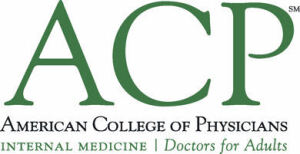ACP: Get screened for colon cancer at 50
by
Brendon Nafziger, DOTmed News Associate Editor | March 06, 2012

The American College of Physicians' new colon cancer screening guidelines recommend patients start getting screened at 50 and continue until they're 75, when the benefits no longer outweigh the harms. And while the ACP lists CT colonography as a potential screening tool it doesn't include it in its recommended group of screening tests for average- and high-risk patients.
The new guidelines, published Tuesday in the Annals of Internal Medicine, are based on a review of guidelines published by other medical groups over the last few years, including from American Cancer Society and the American College of Radiology. In general, the guidelines call on doctors to create individualized screening plans for patients and to listen to their feedback on what sort of tests they'd prefer, while explaining the expected benefits, harms and costs of each option.
In the guidelines, the group suggests that normal-risk patients undergo a fecal occult blood test once every year, a flexible sigmoidoscopy every five years, or an optical colonoscopy once every 10 years, starting at age 50.
High-risk patients, including African Americans, should start screening at 40, and patients with a close relative with colon cancer should start getting tested 10 years younger than the age at which the relative was diagnosed, according to the guidelines. High-risk patients should also go for optical colonoscopies, ACP said.
For patients getting CT colonographies, the ACP says the screening interval should be once every five years, more or less in line with American College of Radiology recommendations. However, the group does not include in its guidance statement for recommended modalities. The ACP notes that while it's supported by most of the reviewed guidelines, "the [U.S. Preventive Services Task Force] found that the evidence is insufficient to assess the benefits and harms of CTC."
Currently, only 60 percent of adults over 50 get screened, the ACP said. Americans have a 5 percent lifetime risk of colorectal cancer, according to the study.
|
|
|
You Must Be Logged In To Post A Comment
|
